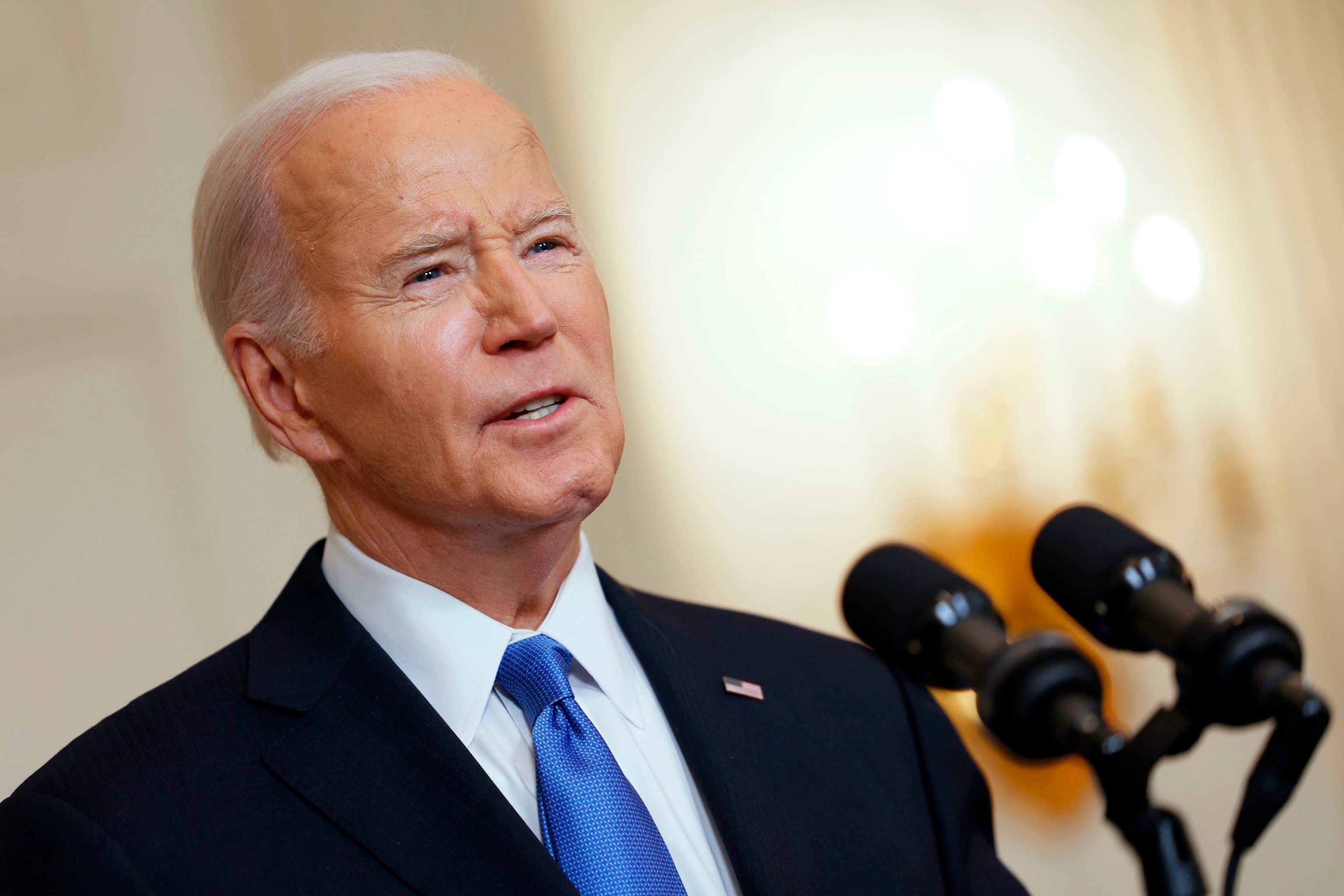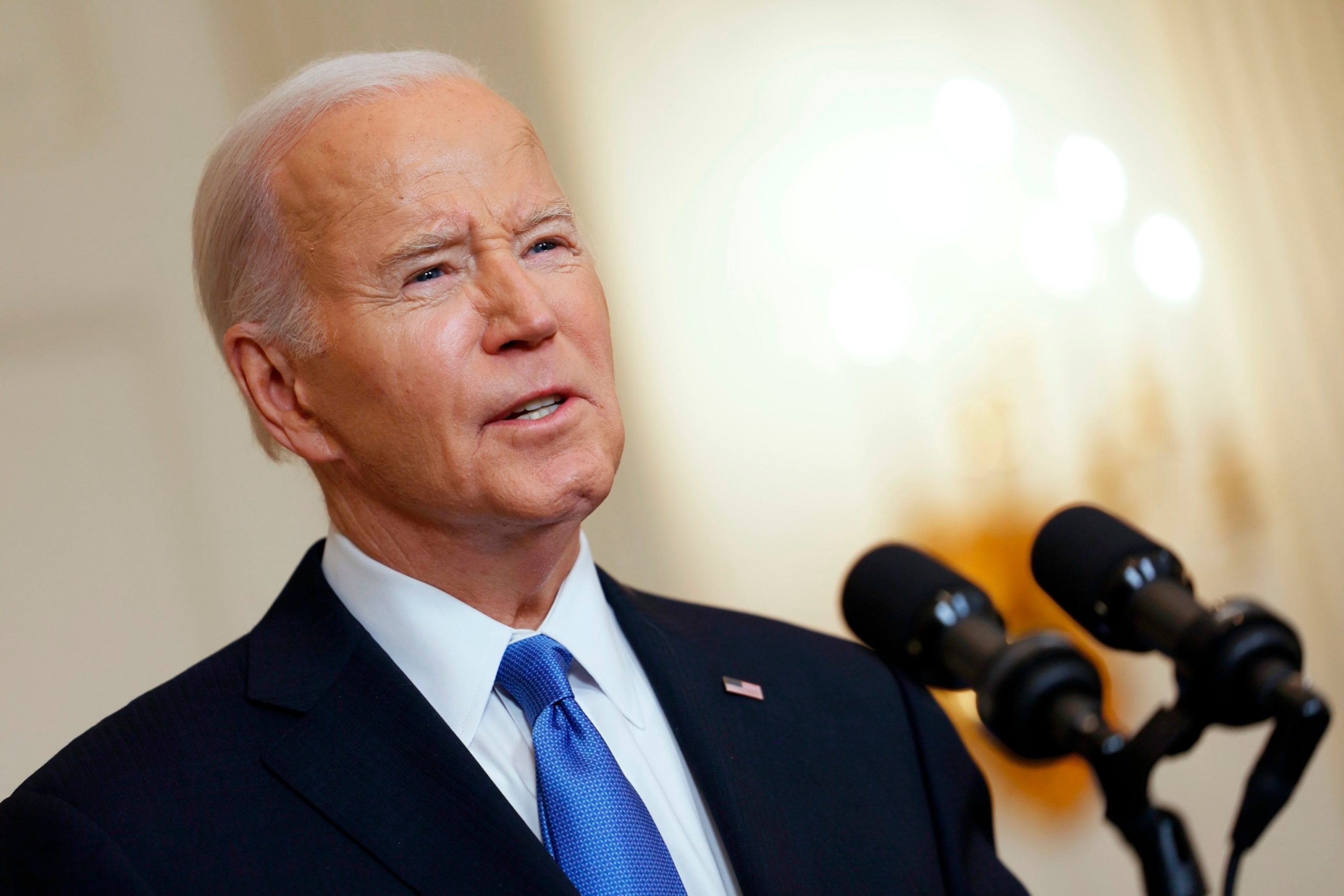A transcript of President Joe Biden’s interview with the special counsel who investigated his handling of classified information contradicts the president’s characterization of an exchange about the death of his son, Beau Biden, from brain cancer.
“There’s even a reference that I don’t remember when my son died,” a visibly irate Biden told reporters hours after special counsel Robert Hur’s report was made public last month. “How in the hell dare he raise that? Frankly, when I was asked the question, I thought to myself: It wasn’t any of their damn business.”
But according to an ABC News review of the transcript, it was Biden, not Hur, who first invoked his son’s death — and the president indeed struggled to recall the exact year it occurred.
During a line of questioning about Biden’s activities after leaving the vice presidency in 2017, a period in which he was writing a book about the loss of his son, the president reminded investigators that Beau Biden’s death weighed heavily on his decision to run for president.
Recalling that period in his life, Biden, according to the transcript, appeared to get confused about when Beau died, getting the date correct, but not the year.
“And so I hadn’t, I hadn’t at this point … I hadn’t walked away from the idea that I may run for office again. But if I ran again, I’d be running for president,” he said, per the transcript. “And, and so what was happening though — what month did Beau die? Oh, God, May 30th–“
After two others present reminded him that Beau passed away in 2015, Biden said: “Was it 2015 he had died?”

U.S. President Joe Biden speaks on the Senate’s recent passage of the National Security Supplemental Bill, which provides military aid to Ukraine, Israel and Taiwan, in the State Dining Room of the White House on Feb. 13, 2024 in Washington, DC.
Anna Moneymaker/Getty Images
“It was May of 2015,” another person said, according to the transcript.
The incident is cited by Hur, who characterized Biden in his 388-page of report as a “sympathetic, well-meaning, elderly man with a poor memory” — a description that Biden and his legal team sharply criticized in the aftermath of the report’s publication.
And while Hur declined to press forward with criminal charges against the president — despite finding some evidence that he “willfully retained” classified records — the damning descriptions of Biden’s recall have presented fodder for the president’s critics.
The Justice Department provided the transcript to lawmakers in the House Judiciary and Oversight Committees in response to their subpoena, hours before Hur was scheduled to testify before the House Judiciary Committee Tuesday morning. ABC News reviewed a copy of the roughly 250-page interview transcript, which shed fresh light on the five hours Biden voluntarily spent with investigators over the course of two days last October.
The president’s testimony included detailed descriptions of events that happened many years prior, including policy debates and his own foreign travel.
The image of Biden that emerges in the lengthy interview largely mirrors his public persona: at times steadfastly defensive, but in other moments jocular, conversational, and prone to lengthy tangents.
At the beginning of the interview, for example, after Hur instructed Biden to share his best recollection of events that were in some cases decades in the past, Biden quipped: “I’m a young man, so it’s not a problem.” He later joked that he hoped investigators “didn’t find any risqué pictures of my wife in a bathing suit” during their search of his Wilmington, Delaware, home.
“She’s beautiful,” he said.
For his part, Hur acknowledged that his line of inquiry could at times be “unclear or badly phrased,” and in one instance apologized for framing a question “clunkily.”
“I sometimes do that; I often do that,” Hur conceded.
Biden repeatedly insisted that he never intentionally kept classified material and that if he had found them, he would have returned them.
“I had no purpose for them, and I think it would be inappropriate for me to keep clearly classified documents,” the president said.
Biden did, however, admit to keeping personal notes from his time as vice president: “They’re my notes and they’re my property,” he said, referencing precedent set under previous administrations.
He also stressed repeatedly that he relied on staff to pack and move his belongings and papers when he left the White House.
“I don’t want to hold them responsible or get them in trouble, but I believe they were the ones who were packing up … and were deciding, you know, where, where things were going, to the best of my knowledge,” he said.
At one point, Biden described handling the boxes kept in the garage of his home in Wilmington — but without knowing what was in them.
“I remember moving boxes, literally physically moving them, with help, one side to the other so I could get the Corvette in that garage on the left,” Biden told investigators.
He also, according to the transcript, demonstrated signs of vitality — repeatedly declining offers to take a break, opting instead to power through hours of questioning.
Lawmakers on both sides of the aisle are expected to scrutinize Hur’s handling of the investigation during Tuesday’s hearing. Democrats and allies of Joe Biden have called Hur’s reference to Biden’s age and memory gratuitous and irrelevant, while Republicans are expected to question Hur’s decision to absolve Biden of criminal conduct.
Hur’s testimony before the House Oversight Committee begins at 10 a.m. ET.
A recent investigation into documents related to President Joe Biden’s exchange with Chinese President Xi Jinping regarding the death of Biden’s son, Beau, has revealed a discrepancy in Biden’s account of the conversation. The contradictory transcript has raised questions about the transparency and accuracy of Biden’s recollection of the emotional exchange.
The discrepancy centers around a conversation that took place between Biden and Xi during a meeting in 2015, shortly after Beau Biden passed away from brain cancer. According to Biden, he shared a deeply personal story about his son’s death with Xi, who offered his condolences and expressed sympathy for the Biden family. Biden has often cited this exchange as a moment of genuine connection between himself and Xi, highlighting the importance of empathy and understanding in international relations.
However, a recently uncovered transcript of the conversation tells a different story. In the transcript, Xi is recorded as offering only brief condolences for Beau’s death before quickly shifting the conversation to more diplomatic matters. There is no mention of a personal story shared by Biden, raising doubts about the accuracy of Biden’s account of the exchange.
The discrepancy in the transcript has sparked speculation about why Biden may have misrepresented the conversation with Xi. Some critics argue that Biden may have embellished the details of the exchange to portray himself in a more sympathetic light, while others suggest that he may have simply misremembered the conversation due to the emotional toll of his son’s death.
Regardless of the reasons behind the discrepancy, the incident highlights the importance of transparency and accuracy in political communication. As the leader of a major world power, Biden’s words and actions carry significant weight and can have far-reaching implications for international relations. Inaccuracies or misrepresentations in his accounts of important conversations can undermine trust and credibility, both at home and abroad.
Moving forward, it will be crucial for Biden to address the contradiction in the transcript and provide a clear explanation for the discrepancy. Transparency and honesty are essential qualities for any leader, and it is important for Biden to uphold these values in order to maintain the trust and confidence of the American people and the international community. Only by acknowledging and addressing discrepancies in his accounts of important conversations can Biden demonstrate his commitment to integrity and accountability in his role as President.



